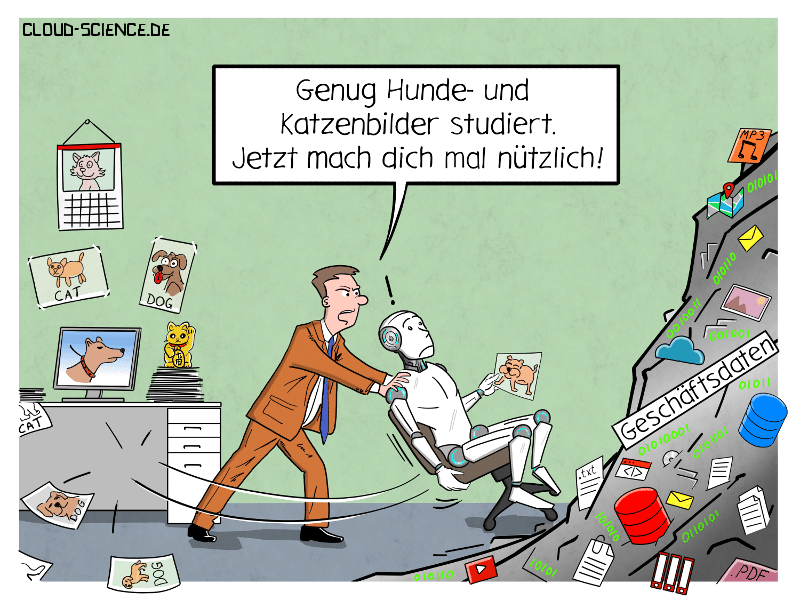Past Meets Future: AI analyzes 17th-Century Bureaucracy
[Please, find the german version below]
As the opening of the workshop “AI-based methods for the humanities”, BIFOLD and the Weizenbaum Institute are hosting an engaging lecture and discussion on September 22, 2025. The event will explore how artificial intelligence not only opens new doors for studying historical administrative processes, but also provides impulses for current debates on efficiency, transparency, and power structures. Christoph Sander (DHI Rome) will highlight the possibilities and limitations of AI-based methods in historical research – and together with Jan Mendling (HU Berlin) critically examine their relevance for today’s administrative and organizational contexts. Prof. Dr. Matteo Valleriani (Max Planck Institute for the History of Science, BIFOLD Fellow) will introduce the speakers and moderate the event.
Please note that the event will be conducted in German.
Abstract: In his lecture, Christoph Sander will demonstrate how AI supports digital history in analyzing 17th-century church administration more quickly and thoroughly. Was the allocation of church offices globally efficient but locally corrupt? But what do efficiency and corruption actually mean in this historical context, and how can they be measured quantitatively? And is the use of AI itself efficient—or perhaps rather “corrupt”?
Following the lecture, Jan Mendling will discuss this historical perspective in the light of modern business process management. Striking similarities with digital history become apparent. Yet if AI is to be used in public administration in the future, the question of its prerequisites and consequences arises all the more: this concerns us all!
Speaker
Christoph Sander is a knowledge engineer at the German Historical Institute in Rome, where he works in the project GRACEFUL17. He studied philosophy in Freiburg and Berlin and received his Ph.D. in 2019 from the Technische Universität Berlin with a dissertation on conceptions of magnetism in the early modern period. His research combines the history of science with digital humanities, drawing on technologies such as IIIF, TEI XML, SPARQL, and Transkribus. From 2019 to 2022, he was a postdoctoral researcher at the Bibliotheca Hertziana (Max Planck Institute for Art History), focusing on the role of diagrams in early modern science, and from 2022 to 2023 at the Max Planck Institute for the History of Science in Berlin. He has also published on Jesuit philosophy, censorship in Jesuit colleges, and the transmission of De sphaera mundi.
Jan Mendling is Einstein-Professor of Process Science in the Department of Computer Science at Humboldt-Universität zu Berlin. He also holds positions as adjunct professor at Vienna University of Economics and Business, Principal Investigator at the Weizenbaum Institute in Berlin, and Co-Founder of Noreja Intelligence GmbH. His research focuses on business process management and information systems, where he has authored more than 500 publications in leading journals such as Management Information Systems Quarterly, ACM Transactions on Software Engineering and Methodology, and IEEE Transactions on Software Engineering. Mendling is founding co-Editor-in-Chief of Process Science and co-author of standard textbooks including Fundamentals of Business Process Management (2nd edition) and Wirtschaftsinformatik (12th edition).
Historische Verwaltung trifft KI: Einsichten fürs Heute
Als Auftakt zum Workshop „AI-based methods for the humanities“ veranstalten BIFOLD und das Weizenbaum-Institut am 22.09.25 einen spannenden Vortrag und Diskussion darüber, wie Künstliche Intelligenz nicht nur neue Türen zur Erforschung historischer Verwaltungsprozesse öffnet, sondern auch Denkanstöße für aktuelle Debatten über Effizienz, Transparenz und Machtverhältnisse liefert. Christoph Sander (DHI Rom) wird die Möglichkeiten und Grenzen KI-gestützter Methoden in der Geschichtswissenschaft sichtbar machen – und gemeinsam mit Jan Mendling (HU Berlin) ihre Relevanz für heutige Verwaltungs- und Organisationskontexte kritisch beleuchten. Moderiert wird das Event von Prof. Dr. Matteo Valleriani (Max Planck Institute for the History of Science, BIFOLD Fellow).
Bitte beachten Sie, dass die Veranstaltung auf Deutsch stattfinden wird.
In seinem Vortrag wird Christoph Sander zeigen, wie künstliche Intelligenz in der Digital History dabei hilft, die Kirchenverwaltung im 17. Jahrhundert schneller zu erschließen und besser zu verstehen. War die Vergabe von Kirchenämtern global effizient, aber lokal korrupt? Doch was bedeuten Effizienz und Korruption in diesem historischen Zusammenhang überhaupt und wie lassen sie sich quantitativ messen? Und ist der Einsatz von KI selbst effizient oder vielleicht doch eher "korrupt"?
Im Anschluss an den Vortrag diskutiert Jan Mendling diese historische Perspektive vor dem Hintergrund des modernen Business Process Management. Es zeigen sich einige Ähnlichkeiten mit der digitalen Geschichtswissenschaft. Doch wenn KI zukünftig in der öffentlichen Verwaltung eingesetzt wird, stellt sich die Frage nach den Voraussetzungen und Folgen vielleicht umso mehr: das (be)trifft uns alle!
Redner
Christoph Sander ist Knowledge Engineer am Deutschen Historischen Institut in Rom, wo er im Projekt GRACEFUL17 arbeitet. Er studierte Philosophie in Freiburg und Berlin und promovierte 2019 an der Technischen Universität Berlin mit einer Dissertation über Vorstellungen von Magnetismus in der Frühen Neuzeit. Seine Forschung verbindet Wissenschaftsgeschichte mit Digital Humanities und nutzt dabei Technologien wie IIIF, TEI XML, SPARQL und Transkribus. Von 2019 bis 2022 war er Postdoc an der Bibliotheca Hertziana (Max-Planck-Institut für Kunstgeschichte) mit einem Schwerpunkt auf der Rolle von Diagrammen in der frühneuzeitlichen Wissenschaft. Von 2022 bis 2023 forschte er am Max-Planck-Institut für Wissenschaftsgeschichte in Berlin. Darüber hinaus veröffentlichte er Arbeiten zur Jesuitenphilosophie, zur Zensur an Jesuitenkollegs sowie zur Überlieferung der De sphaera mundi.
Jan Mendling ist Einstein-Professor für Process Science am Institut für Informatik der Humboldt-Universität zu Berlin. Außerdem ist er Adjunct Professor an der Wirtschaftsuniversität Wien, Principal Investigator am Weizenbaum-Institut in Berlin und Mitgründer der Noreja Intelligence GmbH. Seine Forschungsschwerpunkte liegen im Geschäftsprozessmanagement und in Informationssystemen. Er hat dazu mehr als 500 Publikationen in führenden Fachzeitschriften veröffentlicht, darunter Management Information Systems Quarterly, ACM Transactions on Software Engineering and Methodology und IEEE Transactions on Software Engineering. Mendling ist Gründungs-Co-Editor-in-Chief der Zeitschrift Process Science und Mitautor von Standardlehrwerken, darunter Fundamentals of Business Process Management (2. Auflage) und Wirtschaftsinformatik (12. Auflage).
Image by cloud-science.de


